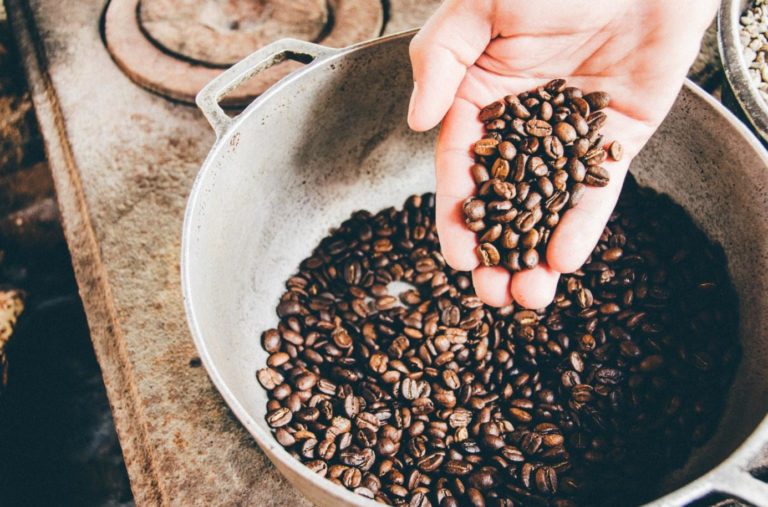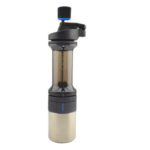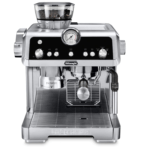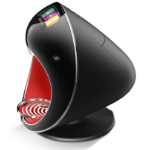Ethically Sourced Coffee – Why Does It Matter?
It’s 2020. Consumers are making more ethically and environmentally-conscious buying decisions this day and age than ever before – and for good reason.
Many of these very consumers are wondering about whether the products they’re getting are built, manufactured, or grown with ethical standards. Coffee included, of course!
Lovers of this rich, flavorful drink desire high quality, affordable brews. Additionally, though, they generally want their coffee-buying to mean something or have some sort of good impact on the world. Responding quickly to these socially aware buyers, distributors now often include labeling that addresses these types of concerns.

Terms such as “Ethically Grown”, “Sustainably Sourced”, and “Fair Trade” are on multiple coffee packages around the world, but what do these even mean?
Today, we’re helping you find out.
Meaning of Ethically Sourced
Why ethical coffee matters.
Basically, when you see this phrase or label on packages of amazingly-smelling coffee beans or pre-ground varieties, you know immediately that you’re purchasing a product that was produced in such a way that maintained respect for the person growing it as well as the environment in which it grew.
A top corporate purchaser, Starbucks, founded a program a couple of decades ago that concentrates on ethically sourcing coffee. This program benefits small coffee farms financially, and thus, the environment.
Since its inception, it has grown to become a program that directly influences coffee production globally and is a main reason for increased preservation of large areas of forests and has also resulted in millions of workers earning above minimum wages.
Buying coffee that’s ethically grown and sourced means your money is going straight to growers, not intermediaries. Farmers that make more money this way have the ability to better support their communities and families and are also less likely to resort to bad farming practices that harm the environment in order to try and keep their costs down.
Sustainably Grown
The growing and processing of coffee has a monumental impact on the environment. With increasingly warmer climates due to global warming, areas that were once the perfect spots for growing this crop are now too hot for proper cultivation.
Farmers can move crops to higher altitudes that are cooler, of course. And while this is a friendly solution to the environment, it’s often a decision that’s too expensive to achieve. In these cases, poor farmers will often clear their forests, since it’s the more affordable option.
Every time a tree is cut, though, carbon gets released into the atmosphere, which further heats the Earth. Additionally, coffee generally grows on steep slopes within forests. If enough of these areas get deforested, the consequence is erosion, which can cause damage to rivers and streams via sediment build-up.
Because areas like Ethiopia and South America, where coffee is frequently grown, are often plagued with revolving leadership as well as rampant corruption, it’s challenging for coffee lovers to help on an individual basis.
However, there is an effective way to support the good cause – support the companies that purchase from responsible growers. These are companies that use their presence internationally to encourage growers to cooperate with labor and environmental standards. Plus, using incentives like the Sustainable Coffee Challenge, organizations like Conservation International, make it a goal to raise awareness of climate change and economic issues.
This challenge aims to unite researchers, governments, growers, and distributors who truly have made commitments to supporting the long-term sustainability of the coffee crop. The higher the demand of sustainably sourced coffee, the more likely it is that growers and distributors will follow environmentally-friendly and socially ethical practices.
Common Coffee Labels and Their Meanings
Fair Trade
When you see a package of coffee with a Fairtrade seal, this means that Fairtrade International has officially certified it. This organization is committed to the improvement of ecological, social, and economic standards for coffee-growing through purchasing directly from small farms.
Moreover, Fairtrade International also supports farmers by setting a price minimum for beans that accounts for the costs required to produce coffee in a way that protects the environment and growers.
U.S.D.A Organic
Of the labels you might find on a coffee package, U.S.D.A. Organic is among the most meaningful. To earn this seal, the coffee beans within and the soil from which they came must be completely free from most pesticides and synthetic fertilizers. Growers who desire this seal are careful to document their bean production from beginning to end and have their farms inspected annually to ensure standards are met.
Bird-Friendly Habitat
Coffees that don this label are certifiably grown in an environment that was both organic and a “bird-friendly habitat”, as officially defined by the Smithsonian Migratory Bird Center. To earn this label, farms need to protect the native trees and biodiversity that provide crucial nesting spots for birds and other wildlife.
Rainforest Alliance Certified
This seal indicates that at least a portion of the coffee in a batch originates from farms that meet sustainability and biodiversity goals. These ethical coffee standards are similar to those required in the Bird-Friendly Habitat seal, but are less rigid and ultimately aim to emphasize improvement rather than encompassing all-or-nothing requirements.





